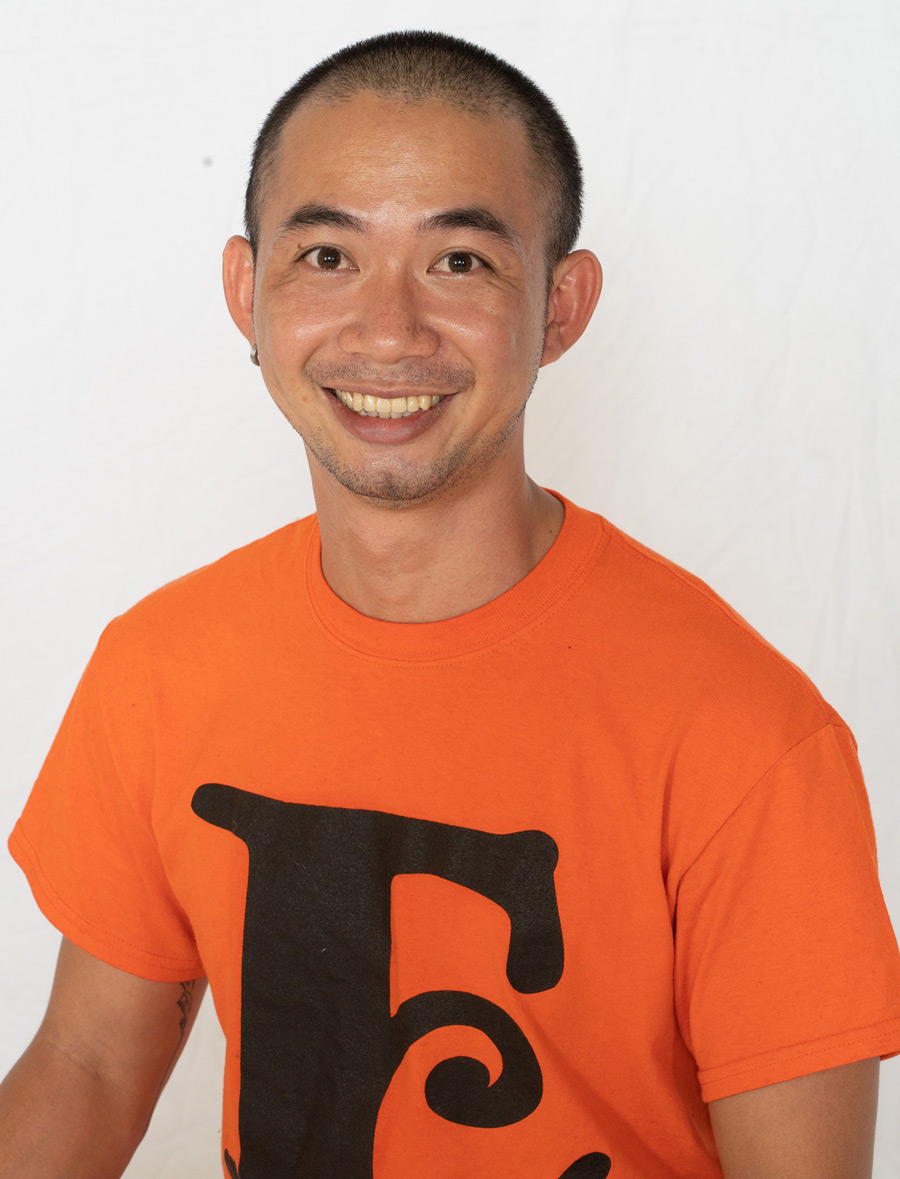
Nguyen ’22G
“She asked me to sing a song,” Nguyen recalls. “She said, ‘I will close my eyes. You can do any song. I’ll turn away and just listen.’” The compassionate prompting made all the difference. “She helped me to open up and try something new,” Nguyen says. “I wasn’t so scared to make a mistake. That’s an opportunity. We can learn and grow from that.”
While Plymouth State has had Fulbright recipients among its faculty, staff, and graduate students, Nguyen is the first grantee to choose the University as his host institution. Already adept at using the arts to help young people access education in a meaningful way, Nguyen was interested in PSU for its integrated arts program and its small, rural campus surrounded by mountains and hiking opportunities. He sees PSU’s Emmy award-winning TIGER (Theatre Integrating Guidance, Education and Responsibility) program as a self-esteem booster and a segue from visual to performing arts.
As Nguyen and TIGER cast-mates entertain and educate audiences across New England, he is learning about script writing, set design, and motivating with compassion and compliments. “This course is very helpful for me,” he says. “In Vietnamese culture, we don’t really give compliments and motivate others through praise, so I can learn that from Dr. Lindberg. I think this will help me when I work with my students in the future.”
Nguyen, 30, grew up in the Mekong delta region of Vietnam and earned a bachelor’s degree in architectural design in 2014. During his graduation year he came to the conclusion that architecture—and working on a computer all day—were not good fits for him.
“I took a gap year for traveling and to spend time understanding myself and what I want to do next,” Nguyen says. He applied for a competitive leadership program in Hanoi and became one of ten finalists to take part in community development training, a new concept in his nation. As a nonprofit volunteer, he helped build playgrounds and provided resources for young children without access to a formal education and learned techniques for bringing art into the classroom to motivate students who were not typical learners.
In 2019, Nguyen launched the Drawing Elephant, his own learning program that built upon mindfulness concepts to help children and young adults reduce stress and maintain emotional well-being. He also taught “sketch-noting”—or taking notes in sketches—that incorporates drawing into work and studies.
Nguyen discovered the term “arts integration” online, which led him to PSU’s master’s program. “By integrating arts into the classroom, I can increase students’ learning engagement and enjoyment,” he says. After receiving the Fulbright award, he arrived on campus in August.
Nguyen loves the leafy trees, green grass, and mountain vistas that frame campus life and feels welcome in New Hampshire, in part because of the supportive start provided by Global Engagement Office. “They share knowledge about the US culture and about the learning environment at Plymouth State,” he says, noting that staff helped to guide international students at the grocery store and connected them with peers through hikes and other outings. “It’s really nice of them, and it’s really helpful for international students.”
The online TIGER TIME series for children and families was launched in 2020 when the pandemic precluded touring, and it has resumed this year. TIGER incorporates live theatre, movement and music for school-age audiences, and the anonymous writings of children. The program aims to transform feelings, thoughts, and behavior to help children and adults understand their own power in resolving social issues that exist in schools today.
“I am happy and excited to perform for the kids,” Nguyen says. “They really love it. They sing, clap, and move when we sing and act on the stage. They really are involved in the show.”
Nguyen has been particularly moved by the children who approach him after performances and unabashedly share their emotions. “It touched me, because they can get the message,” he says. These are among the experiences that he plans to replicate when he returns home next year after completing his PSU degree. ■ Janice Beetle